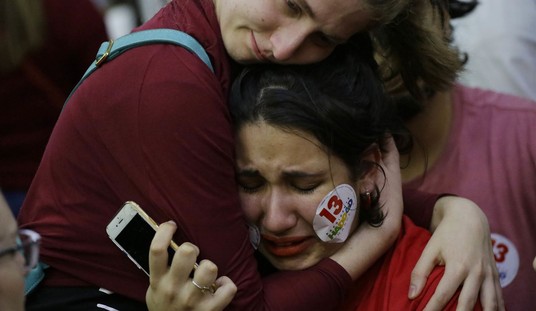ABC’s Jake Tapper has obtained an internal email in which the US State Department in Washington denied the Libya security team a request to keep a DC-3 aircraft on station in the chaotic country. The SST, or Security Support Team, requested that the aircraft stay in country, so that the team could more easily move its personnel and equipment around Libya as its needs arose. But in the May email, on which Ambassador Christopher Stevens was copied, State terminates use of the DC-3 in Libya immediately.
The subject line of the email, from Miki Rankin, the post management officer for Libya and Saudi Arabia, reads “Termination of Tripoli DC-3 Support.”
Rankin informs Stevens and the others on the email, whose names have been redacted, that Undersecretary of State for Management Patrick Kennedy “has determined that support for Embassy Tripoli using the DC-3 will be terminated immediately. Post’s request to continue use of the plane in support of the SST was considered. However, it was decided that, if needed, NEA will charter a special flight for their departure.”
—
Provided with a copy of the e-mail, a senior State Department official downplayed the importance of the denied request. The official told ABC News that “the DC-3 was pulled from Iraq and moved to support Libya early on when there was no commercial airline service into Libya. When commercial service was re-established in Libya, the aircraft was reassigned to other State Department business. We use our aircraft when no commercial flights exist.”
Bringing up the issue of commercial flights appears to be a red herring. In the months leading up to the 9-11-12 terrorist attack that killed Stevens and three other Americans, the consulate in Benghazi had been subjected to 13 separate security incidents including improvised explosive device attacks, and jihadist threats posted online in the form of notes about Ambassador Stevens’ morning running route. As the situation in Benghazi deteriorated, State doubled down on the DC-3 decision by pulling the security team out altogether in August. That decision left security at the compound so threadbare that it surprised the owner from whom State rented it. Some of the local militia hired to protect the compound, in the absence of American security that had been removed, ended up helping the terrorists during the attack. How much loyalty can we expect during an assault from guards who were reportedly being paid $4 an hour?
Libya isn’t a wealthy country by American standards. Before the country’s civil war in 2011, the average income was about $12,000, or six dollars per hour for a 40-hour work week. It’s safe to assume that the fighting over the last 18 months has only lowered that average take-home pay.
Still, $4 an hour isn’t exactly a king’s ransom, considering the risks to the consulate’s security personnel. On June 6, militants planted a bomb at the mission’s north gate, blowing a hole allegedly big enough for 40 people to run through. Then came the coordinated assault on Sept. 11 that left four Americans — including the U.S. ambassador — dead. The FBI claims that Benghazi is still too dangerous to set up a dedicated operations center there.
That story hit the ‘net on Tuesday. Since then, the FBI has finally gotten to the compound to start its investigation. Half the country and lots of reporters have had the opportunity to traipse through the site by now, though, probably contaminating any evidence that might remain.
Returning to the DC-3 issue, no one argues that that aircraft would have saved the four Americans killed that night had it remained in country. But its removal, against the recommendations of the local American security team, strongly suggests that State was not listening to US personnel on the ground and was not paying due attention to the deteriorating situation in Benghazi. Having already failed to beef up the compound, State would all but seal Stevens’ fate by removing his American security detail in August.









Join the conversation as a VIP Member